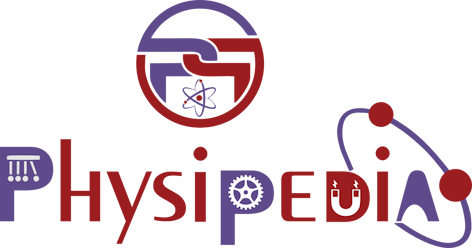Physics encompass a broad range of disciplines that study the non-living world, including physics, chemistry, astronomy, and Earth sciences. These fields explore matter, energy, and their interactions across various scales, from the subatomic to the cosmic. The scope of physics is vast, with applications spanning diverse areas like technology, medicine, and environmental science.
Branches of Physics:
Physics is broadly divided into the following areas:
- Classical Physics – Mechanics, Thermodynamics, Electromagnetism, etc.
- Modern Physics – Quantum Mechanics, Relativity, etc.
- Nuclear and Particle Physics – Study of atomic nuclei and subatomic particles.
- Astrophysics and Cosmology – Study of stars, galaxies, and the universe.
- Condensed Matter Physics – Study of solids and liquids, especially at atomic scales.
- Optics – Study of light and its interactions.
- Acoustics – Study of sound waves.
Range of Study:
Physics deals with a wide range of scales:
- From subatomic particles (like quarks and electrons)
- To macroscopic objects (like cars and planets)
- To cosmic scales (like stars and galaxies)
Applications of Physics:
Physics is the foundation for many technologies and fields:
- Engineering (mechanical, electrical, civil, etc.)
- Medical equipment (MRI, X-rays)
- Space science and astronomy
- Electronics and communication
- Renewable energy systems
Methodology:
Physics involves:
- Observation
- Experimentation
- Mathematical modeling
- Theory development and testing
Major Research Areas in Physics
Physics research spans many exciting and essential areas:
| Research Area | Description |
|---|---|
| Quantum Physics | Study of particles at atomic and subatomic levels. |
| Relativity | Einstein’s theories dealing with space, time, and gravity. |
| Nuclear & Particle Physics | Investigation of atomic nuclei and fundamental particles. |
| Condensed Matter Physics | Study of solids and liquids, including superconductivity and semiconductors. |
| Astrophysics & Cosmology | Understanding stars, galaxies, black holes, and the universe’s origin. |
| Plasma Physics | Study of ionized gases found in stars and fusion reactors. |
| Biophysics | Applying physics principles to biological systems. |
| Geophysics | Studying Earth’s physical properties using physics tools. |
Career Options in Physics
Physics opens up a wide range of career paths in both academic and industrial fields:
| Field | Careers |
|---|---|
| Research & Academia | Physicist, Research Scientist, University Professor |
| Engineering & Technology | Aerospace Engineer, Robotics Specialist, Instrumentation Engineer |
| Medical Field | Medical Physicist, Radiation Therapist, Imaging Specialist (MRI, CT) |
| Information Technology | Data Analyst, AI & Machine Learning Engineer, Quantum Computing Specialist |
| Energy Sector | Nuclear Physicist, Renewable Energy Expert |
| Space and Defense | Space Scientist (ISRO, NASA), Defense R&D Officer |
| Education & Outreach | Physics Teacher, Science Communicator, Curriculum Developer |
Impact of Physics on Society
Physics has a profound impact on every aspect of modern life:
Technology Development
- Smartphones, computers, lasers, and internet systems all rely on principles of physics.
Medical Advancements
- X-rays, MRI, PET scans, and radiation therapy are based on physics discoveries.
Energy Solutions
- Physics helps in developing nuclear, solar, wind, and hydroelectric power systems.
Understanding the Universe
- Physics explains natural phenomena, from gravity to the Big Bang.
National Development
- Physics-based industries and research contribute to a country’s technological and economic growth.
Physics is more than just formulas and theories — it is the backbone of innovation, discovery, and technological advancement. Its scope is limitless, offering exciting research opportunities, diverse career options, and a significant impact on our world and future.
